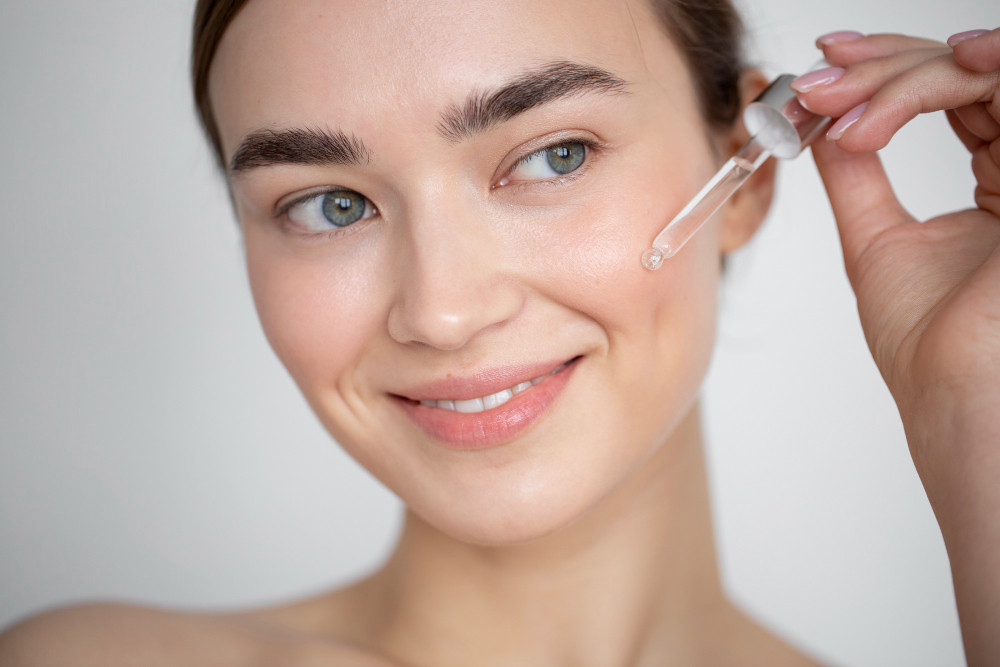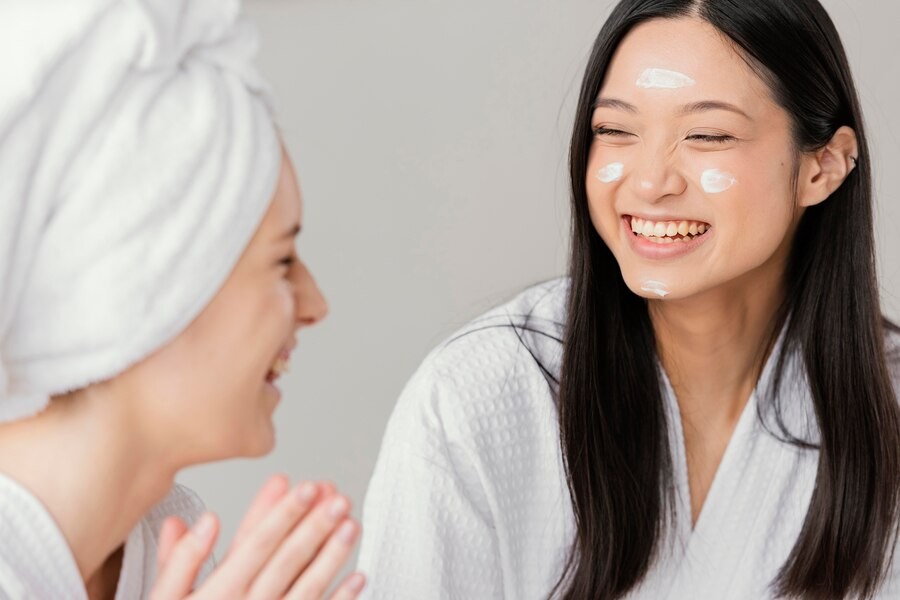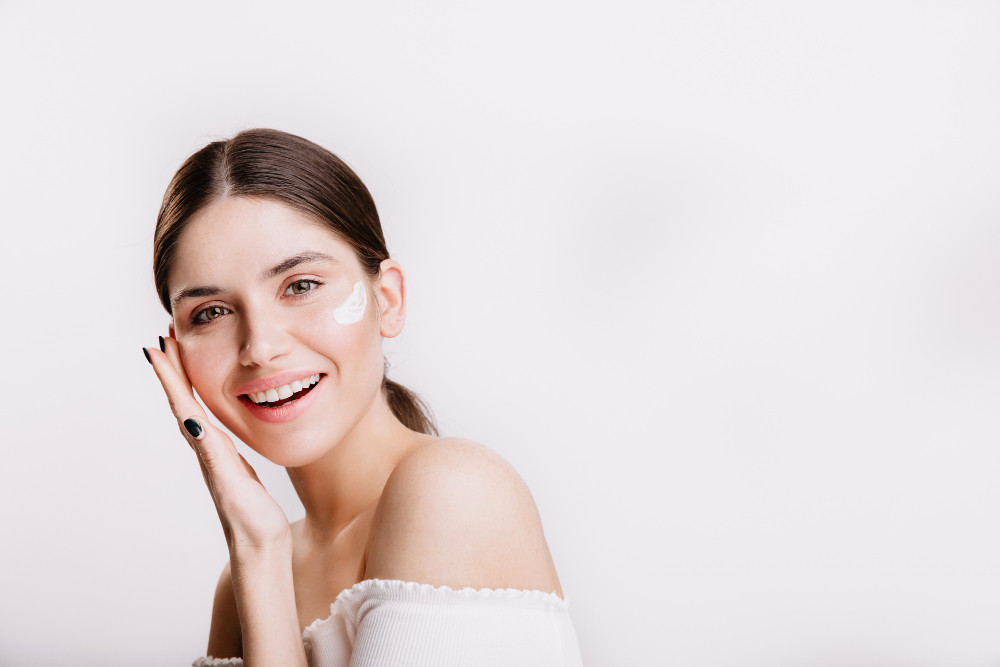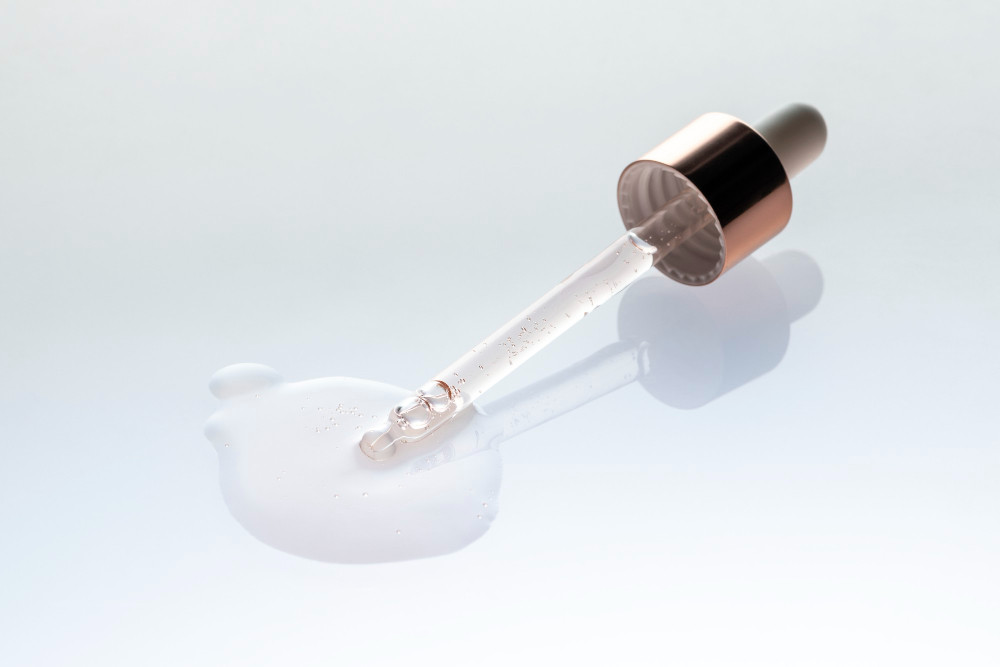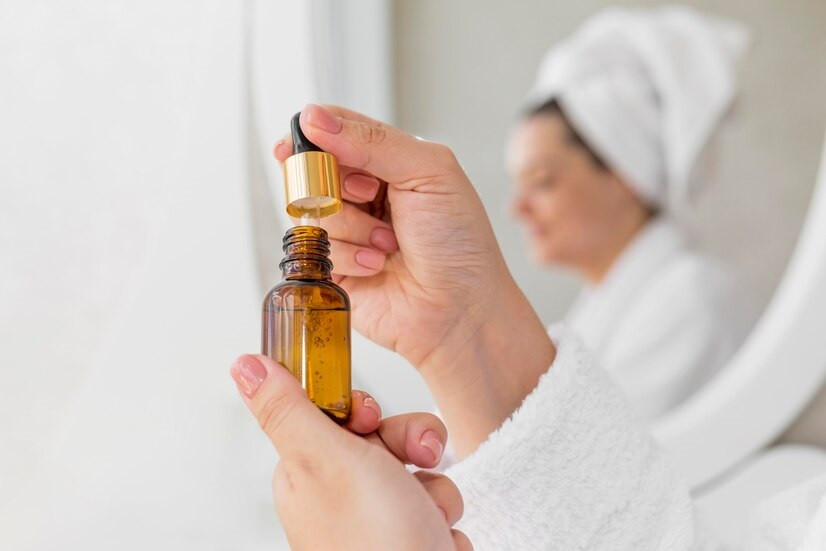Acne scars, uneven skin tone, and dark spots on the face can make a person feel insecure. Use skincare containing alpha-arbutin to even out skin tone and make it appear brighter. What are the benefits and side effects of alpha-arbutin? Check out the following review.
What is alpha-arbutin?
Alpha-arbutin is found in many skincare products, such as serums, moisturizers, toners, and sheet masks. Aside from alpha-arbutin, some products also contain beta-arbutin.
Arbutin is a molecule derived from the bearberry plant that inhibits melanin production. Alpha-arbutin is a synthetic form of arbutin, whereas beta-arbutin comes from plants. Alpha-arbutin is commonly used in skincare due to its stability.
Blackish spots on the face are caused by pigments produced in melanocyte cells that contain the enzyme tyrosinase. Using arbutin-based skincare inhibits tyrosinase, allowing black spots to fade and be managed.
Read more: The Proper Skincare Sequence: Serum or Moisturizer First?
Benefits of alpha-arbutin
Alpha-arbutin has several benefits for facial skin, including:
It helps brighten the skin
Arbutin in skincare inhibits the production of tyrosinase. Tyrosinase production can increase when exposed to sunlight, resulting in dark and dull skin. Arbutin can slow down the production of tyrosinase, resulting in less melanin and a brighter complexion.
Reduces hyperpigmentation
Hyperpigmentation causes uneven skin tone. Using arbutin-based skincare can help reduce hyperpigmentation and even out the skin tone. Regular use of alpha-arbutin for 12 weeks can brighten and even out the skin tone.
Fade acne scars
Aside from UV-induced dark spots and hyperpigmentation, alpha-arbutin can also help fade acne scars.
Gentle on the skin
Another benefit of arbutin as a skin-lightening ingredient is that it is gentle, does not irritate, and does not dry out the skin. The arbutin compound is released slowly so that it does not trigger severe skin irritation. Arbutin's ability to lighten the skin makes it more popular than other skin-lightening ingredients.
Read more: Benefits Of Using Face Serum, According To Experts
Side effects of alpha-arbutin
Arbutin is relatively safe compared to other brightening compounds like hydroquinone, and it is suitable for sensitive skin. However, if you have acne or rosacea, you should see a dermatologist before using arbutin-containing products.
Alpha-arbutin can be used once or twice per day, depending on your needs and skin condition. You can also combine alpha-arbutin and retinol to boost skin regeneration and product absorption.
Make sure to follow the recommended dosage for alpha-arbutin. Stop using it if you notice any signs of an allergy, such as redness or itching. To reduce hyperpigmentation, use sunscreen after applying skincare.
Alpha-arbutin is a skincare ingredient that helps to brighten the skin. Although it is relatively safe and effective for brightening the skin, you should discontinue use if you experience allergic reactions or irritation.
If you need medical advice or consultation, you can either visit a doctor or make use of the consultation features that are available in the Ai Care application by downloading the Ai Care application from the App Store or Play Store.
Looking for more tips and tricks for health, first aid, and other home treatments? Click here!
- Sean Edbert Lim, MBBS
Migala, J. (2024). What Is Arbutin? Skin-Care Benefits, Side Effects, How to Use It, and More. Available from: https://www.everydayhealth.com/smart-skin/what-is-arbutin/
Xue, F. (2023). Arbutin Is The Dark Spot Fading Ingredient Dermatologists Love—Here’s Why. Available from: https://www.byrdie.com/arbutin-serum#
Blanton, K. (2023). The 10 Best Melasma Treatments to Fade Dark Spots for Every Skin Type, Available from: https://www.verywellhealth.com/best-melasma-treatment-7970657
Boo, Y. C. (2021). Arbutin as a Skin Depigmenting Agent with Antimelanogenic and Antioxidant Properties. Antioxidants (Basel, Switzerland), 10(7), 1129. https://doi.org/10.3390/antiox10071129

